What is domestic abuse?

Domestic abuse can happen to anyone, regardless of gender, age, ethnicity, socio-economic status, sexuality or background.
Home Office Definition of Domestic Abuse:
“Any incident or pattern of incidents of controlling, coercive or threatening behaviour, violence or abuse between those aged 16 or over who are or have been intimate partners or family members regardless of gender or sexuality. This can encompass, but is not limited to, the following types of abuse: Psychological, Physical, Sexual, Financial, Emotional.”
The abusive behaviours may include:
Physical Abuse: punching; slapping; hitting; biting; pinching; kicking; pulling hair out; pushing; shoving; burning; strangling, pinning you down, holding you by the neck, restraining you.
Sexual Abuse: uses force, threats or intimidation to make you perform sexual acts; has sex with you when you don’t want it; forces you to look at pornographic material; constantly pressures and harasses you into having sex when you don’t want to, forces you to have sex with other people; any degrading treatment related to your sexuality or to whether you are lesbian, bisexual or heterosexual.
Financial Abuse: can’t keep a job or pay their share of the bills; makes you feel guilty for spending your own money; offers to handle the household finances and then gradually restricts your access to those accounts; opens credit cards in your name without your knowledge; defaults on accounts in your name; ruins your credit; makes you take out loans, borrow from your family and not paying it back; hides money from you; refuse to let you work or tries to sabotage your career.
Emotional / Psychological Abuse: name calling; belittles you or put you down; blames you for the abuse or arguments; threatens to harm themselves or to commit suicide to get their own way; makes you feel guilty when you refuse sex; blames you for all the problems in a relationship; prevents you from seeing your friends and family; uses a range of words and non-physical actions to manipulate you; hurts, weakens or frightens you; confuses or influences your thoughts and actions; harms your wellbeing; falsely accuses you of doing something you haven’t done.
Coercive Control: Isolates you from your support system; Monitors your activity throughout the day; Denies you freedom and autonomy; gaslighting, manipulates you by forcing you to question your thoughts, memories, and the events occurring around you; turns the children against you or threatens them; monitors and controls aspects of your health and body.
Are you safe?
Has your partner, or former partner has ever:
- Hurt you?
- Controlled you; emotionally, physically, sexually or financially?
- Intimidated you?
- Shouted at you, called you names, insulted you or told you what to or not do?
- Threatened you in any way?
- Said that the abuse isn’t that bad, or that it’s your fault?
- Promised to change and say it will never happen again?
It will probably happen again and it’s not your fault.


